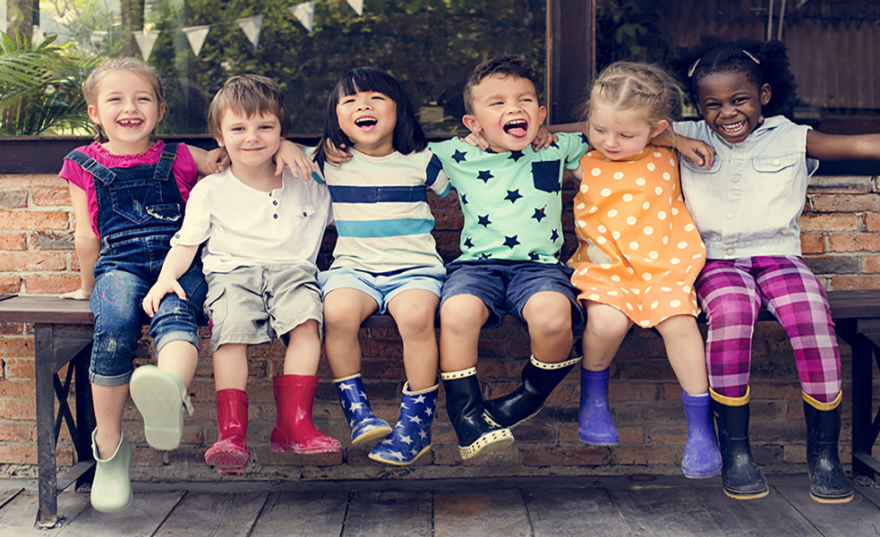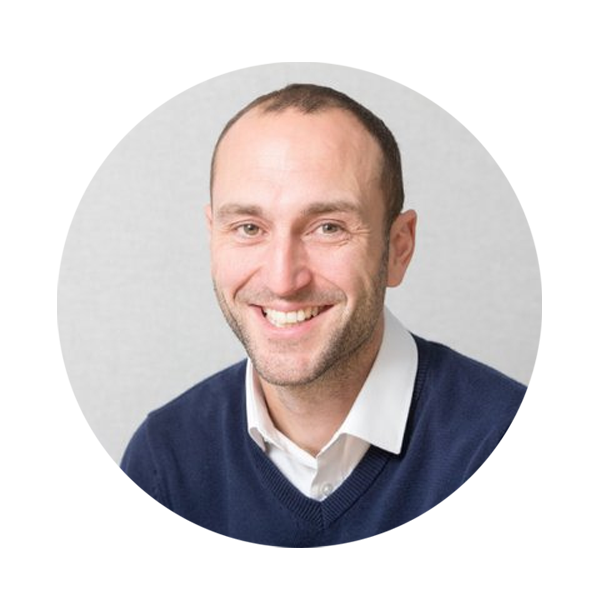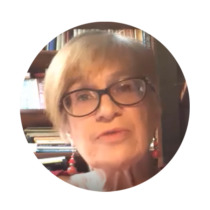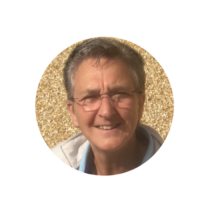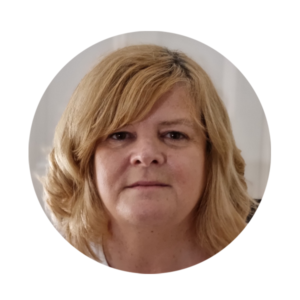Dan Johnson, Clinical Director of Kibble a special intervention service supporting children at risk, talks to freelance journalist Jo Carlowe about trauma and ACE’s.
The relationship between ACE’s and the later development of health-harming behaviours, mental health issues and chronic disease noted by both anecdotal experience of Dan and supported by clinical research implies the great need for intervention. Dan and Jo discuss trauma-informed care, the impact of the ACE’s framework on clinical practice and government policy and the difference between adversity and trauma.
They also touch upon Kibble’s work, and as the chair of ACAMH’s Scottish Branch their goals to spread knowledge on children and young people’s mental health and provide CPD training.
You can listen to this podcast directly on our website or on the following platforms; SoundCloud, iTunes, Spotify, CastBox, Deezer, Google Podcasts and Radio.com (not available in the EU).
Transcript
Intro: This podcast is brought to you by the Association for Child and Adolescent Mental Health, ACAMH for short. You can find more podcasts and other resources on our website www.acamh.org and follow us on social media by searching ‘ACAMH’.
Interviewer: Hello, welcome to the In Conversation… podcast series for the Association for Child and Adolescent Mental Health or ACAMH for short. I’m Jo Carlowe, a freelance journalist with a specialism in psychology. Today I’m interviewing forensic psychologist Dan Johnson, who is the Clinical Director with Kibble Education and Care Centre in Paisley. Dan is also the chair of ACAMH Scotland. He has worked in secure settings for nearly two decades and is passionate about the development and implementation of trauma-informed care.
Interviewer: Dan welcome. Thank you for joining me. Can you start with an introduction about who you are and what you do?
Dan Johnson: Yeah, sure. So I’ve been a forensic psychologist for about 20 years, I hate to admit, and I started off in prisons, working with adults, and I’ve gradually kind of worked with younger and younger people. And I’ve worked in secure care and residential care for the last, I’m not sure, ten or I’ve maybe a few more years than that and I’ve kind of got into the whole drawing form thing because anecdotally, just, I mean, every single young person and adult, I think, that I’ve worked with, have had really concerning behaviours. I’ve also had really really difficult lives, particularly childhoods, and once you notice that you start wondering what you can do about it. The answer to that question tends to be, for me anyway, reform.
Interviewer: Dan, you’ve worked for many years in secure settings with young people who have been exposed adverse and traumatic events. How did this come to be the main focus of your work? What sparked your interest?
Dan Johnson: Yeah, I think when you work with young people and you see these really concerning behaviours,that they are referred to you because of that behaviour, you quickly notice that they’ve had these experiences, and that those experiences seem to have some kind of causal role or that these behaviours are rooted in these experiences. And so, whilst focus on the behaviours, you know can be useful and appropriate, sometimes actually trying to work out where they came from and responding to that I think could be more effective. I’m not saying I didn’t notice any success with kind of behaviour-focused approaches, but I think you need both. I think you need to look at these experiences as important.
Interviewer: Right. there’s been a great deal of interest in the impact of adverse childhood experiences, usually referred to as ACEs. Why do you think this has happened in recent years? Why has there been a surge in interest in ACEs?
Dan Johnson: Yeah. It’s really interesting, isn’t it? Because this stuff’s been knocking about for 20 years.
Interviewer: Wow, that long?
Dan Johnson: Yeah, I think it was the, you know,in the early 90s, the original papers. I think it’s a bit of, you know, an alignment of the Moon stars, kind of thing. In one way they’re really, really accessible, so anyone, regardless of your level of kind of background in this stuff, can understand the way the message of the ACEs research is translated.
I think also it’s really intuitive. So, you know, if you ask anyone if I asked my Nan, I always use this example, my Nan who worked in factories, if she thought that bad childhoods might lead to later difficulties. I think intuitively she, anyone would agree with that. The reason it’s got so popular now is a trickier question. I think it may have something to do with the increasing loudness of lived experience, of people who have had these experiences being listened to and empowered. That may be part of it, but the reason why it’s happened now is in a tricky one that unfortunately, I can’t answer. I’m not too sure.
Interviewer: It’s an interesting one, isn’t it? There are many studies that find a relationship between adverse childhood experiences and later association with health-harming behaviours, mental health issues and chronic disease. Can you give some of the headline findings that help illustrate this relationship?
Dan Johnson: Yeah. Yeah, the brief… the headline, as you say, is that the degree in nature and severity and breadth, I suppose, of adversity and trauma in childhood is linked, or associated, with the degree in nature of later adult difficulties.
So, and that kind of goes across most adult difficulties as well, so be it ADHD, antisocial personality disorder, psychosis, many of these things have an association with childhood adversity and trauma. And when we say adversity and trauma we’re talking about things like childhood sexual abuse, physical neglect or physical abuse, things like that that are at the extreme end of adversity.
And I think we have to be cautious here that it often is an association rather than being categorically a causal link. I remember from, you know, doing correlations at uni, they are just an association and there are some people that have made some very good points in that if you look for an association between a lot of things, you will find it where there may not be a causal factor. Now personally, you know, my anecdotal evidence and reading of the science, convinces me that there is some kind of causal element there, but we do need to be cautious because the science isn’t quite there to demonstrate that yet.
Interviewer: Okay, what does the science say about the causal element?
Dan Johnson: Well, it’s a really tricky one because, ethically, we can’t experiment, you know. I hope no psychologist wants to get a group of kids and put them through adversity just to see what happens. Until someone works out an ethical way to experiment we’ll never really be able to show casual influence. There has been some really interesting longitudinal twin studies that are kind of really getting close as you can really to show that there’s a causal influence but, you know, scientists are always cautious aren’t they. They’re not going to state it categorically without that experimental methodology.
Interviewer: What impact has the ACEs framework and its findings had on clinical practice. So, how have things changed in light of what we know about the impact of those adverse experiences.
Dan Johnson: Yeah, I can only talk for Scotland and really for this kind of residential secure care. That’s about where I work. I think it’s definitely a change for the better. I think what you have in some pockets, and again it’s not uniform, it’s not everywhere, but in some split areas, people really acknowledging that role of experience more. So if I think about 15 years, ago in my little world anyway, the medical model was dominant and people didn’t really challenge that. And now there’s a kind of nice hybrid between, yes that medical model can really give us some really helpful perspectives and responses, as well as, as can this perspective of experience and the role of that in later difficulties. I think it’s a mixed bag though, so beyond the clinical practice, you know in Scotland the ACEs thing’s become a real movement with the First Minister talking about it and huge national conferences. And it’s like anything, the way those findings and messages are interpreted is the important bit.
Interviewer: You mentioned that ACEs has already got the attention of governments across the UK and specifically in Scotland. How have these findings influenced policy so far? And what more would you like to see?
Dan Johnson: Yeah it’s in some ways very good. So in Scotland, there is a huge national project to train the workforce in trauma. And I think that’s a really, really good thing. I think the more people that understand this and understand the root of difficulty the more helpful responses and the less counter-productive responses there will be. There’s been a lot of money put behind that as well to get people trained in a way that’s standardised, for want of a better word, across different services. And that’s everybody. That’s not just your kind of psychologist or therapist, it’s the GP receptionist, it’s, you know, everybody that might be working directly with someone that has experience trauma.
I think there’s, there’s lots more that can be done and for me, in general, I think we’re better at responding to these difficulties for children than we are adults. I see young people that we work with, you know in some circumstances getting a really robust and high level of service, partly because of the experiences they’ve had, partly because of the behaviours that’s then, you know led to, but as they become 16, 17, 18, there’s a cliff edge and those services and supports aren’t as available. And the way that we, you know, that services see these children kind of flips from them being this, you know, traumatized child to this problematic adult. And, actually, I don’t think that’s fair on them or useful for services either.
Interviewer: Right? So that’s a real area where you’d like to see change.
Dan Johnson: Absolutely. And again, it’s problematic because it all costs money doesn’t it? But yeah, I think, I think that the longer we see individuals as individuals’ difficulties as rooted in these experiences, the better it is for, for everybody.
Interviewer: Now, there is an argument that the ACEs approach is over simplistic as it doesn’t account for severity or duration of adversity. It doesn’t consider resilience and it conflates adversity and trauma. I think it would personally be useful in you can explain the difference between adversity and trauma.
Dan Johnson: Yeah. Yeah. So those those criticisms are all completely legitimate and I think with the ACEs framework, it’s really important to take a kind of critical-framed perspective, a balanced perspective. There’s quite a lot of evangelism, if that’s the right word, about ACEs and, you know, it’s good to be behind something, but, you know, I’m an open-minded sceptic. You need to keep a bit of balance with these things.
I think, like everything, its strengths are its weaknesses as well. So that ACEs framework is so accessible you can even convince politicians of it, but that simplicity is its weakness as well because it does oversimplify many things. And the analogy that is, if we’re looking at an individual’s difficulties as a whole, the explanation of that could be seen as something as complex as a city, say or something, you know, as big, as complex as that. The ACEs is a little bit like shining a spotlight on one street or one suburb of that city. It’s just part of this, rather than the whole thing. You’ve got all the protective factors, attachment, you know, biology, culture all these many many of the things that all are important part of explaining difficulties. But that doesn’t mean we should get rid of it just means we should be balanced about how we look at it.
Going back to the second part of the question about the difference between adversity and trauma. So there’s lots written about this. In fact, we can get into some real semantic circular arguments with all this kind of stuff. For me though personally, you know, it’s it comes down to the individual and I know this is a little bit of a get-out clause, but how that individual defines what the most powerful harmful experience of their life is kind of up to them. So if you know, I might meet a young person in this sector look at the file and think, oh, that day they were stabbed in a gang fight, or whatever it was, that must be their traumatic experience when, in fact, that might be normal to them. They might not have even thought twice about it. But another experience say, the police coming through the door, or being moved into care or something that we maybe would never even think of, might be to them the most difficult and overwhelming experience. So this time, you know, I’ll leave the academics to debate the semantics and the definitions but I kind of like that individualistic perspective in practice.
Interviewer: So there’s a sort of relational aspect to it rather than just ticking a box of what the practitioner thinks is traumatic or…
Dan Johnson: Yeah. Yeah. I mean, I think a good rule of thumb is that a definition of trauma is that which overwhelms the individual. I kind of like that word overwhelms. It’s, be that physically or spiritually or mentally or you know, the different levels, but I don’t think it’s for me to say what events can do that and what events can’t. I think that’s, that’s up to the individual.
Interviewer: Okay. I’m going to move on to trauma-informed care which has become the leading approach for organizations seeking to respond to effects of adversity in trauma. What is trauma-informed care and how does it work?
Dan Johnson: Oh, this is the million-dollar question. There’s a lot written about the difference between trauma and adversity. There’s much, much more written about what trauma-informed care is and how you do it. So, I think if you’d have to distill it right down to its essence, for me in practice, it’s about people saying, ‘hang on, if this was me, if I’d experienced these things or if my daughter or my niece or my grandson or whatever, had experienced these things. What would I want them to get from this service or from me as a practitioner?’ And when you start asking that question, the answer is often different things to what we’re already doing, things of compassion and trust and safety and all these kind of nice values. That to me is, when it comes down to it, when people are arguing in practice, when that question comes out people tend to get agreement and consensus about what the right action is.
One of my favourite definitions is that it’s a way of thinking not about what’s wrong with people, but what’s happened to them. And I always vowed that I’d never start quoting sound bites and everything, but that is a nice kind of way that summarizes the approach.
In a way it’s almost easy to say what it’s not than what it is. So it’s not a treatment modality like CBT or EMDR or anything like that. It’s much more an approach or an ethos that might have more kind of similarity to, say, like a children’s rights perspective or a child focus, you know approach. It’s a way of practising across the whole board rather than, say, you know, a therapist doing a particular modality.
So I know that’s vague and I think one of the key problems with trauma-informed care is it is hard to make tangible. It’s difficult and I’ve sat in meetings where you know, with a group of managers in secure care and they’ve been diametrically opposed about what the right action is, and both have been arguing that their point of view is the trauma-informed care point of view.
So, there are many definitions and I know what I’ve said before was maybe a little vague. So, one of the frameworks I like is from SAMHSA, which is the Substance Abuse and Mental Health Agency of America, and they break it down to four Rs, which is: Realize prevalence in your clients and your staff; Recognize the impact of this or acknowledge that it’s actually impacted on the individuals; Respond in ways with that knowledge, so create a helpful response to those young people or service users and finally; Resist re-traumatization, so don’t mirror or replicate things that those children may have, or those adults may have, experienced in the past. And recently in Scotland, people have been talking about the fifth R, which is that it’s all about Relationships, that relationships that were part of the key response to what people need after these experiences.
Interviewer: How can stakeholders implement trauma-informed care? And where can they go to learn more about it?
Dan Johnson: Yeah. So, there are so many resources online at the minute. I recommend the NHS Knowledge and Skills trauma, Trauma Knowledge and Skills Framework, which is a really nice way of exploring all these concepts and telling people the skills and knowledge they need to be able to practise in an informed care way, trauma-informed care way sorry. There’s also lots, like, on the SAMHSA website.
There’s also Trauma Informed Oregon which is really good. And there’s also some authors called Fallot and Harris that have done some nice self-assessment tools that practitioners can go through and, you know, self-evaluate on their service for their practice. I think it’s F-A-L-L-O-T and Harris.
And I think, I should have checked this before I started, but it’s creating the, basically if you Google trauma-informed care most of this stuff will come up.
Interviewer: Okay, great. And what does the research show with regards to the effectiveness of trauma-informed care?
Dan Johnson: Good question. Not much unfortunately. It’s growing but there’s definitely not enough, for me anyway, to be able to say oh this is a resounding powerful effect. Anecdotally I think it is, but there’s still not, you know, the robust science that we would like. There’s some interesting stuff about implementation across, like, huge child welfare agencies in America that shows it’s good and it’s the right direction. But I think, I think there’s something on top of all that which is, I think it’s, it’s a little bit like, you know, the UN rights perspective or a child focus thing which is, it’s a good thing to do anyway. It’s kind of like a moral or ethical obligation, in a way, to do anyway, whether it shows that it improves things dramatically or not. So, for example, if some of the values that are behind trauma-informed care, of providing service users or children with trust and safety and empowerment and choice and collaboration. I find it hard to come up with a reason why you wouldn’t do that anyway. No, it’s, it’s a good idea. Right? It’s a nice thing to do. It’s a moral thing to do.
Interviewer: Are there any other research projects that excite you? That you’d like to mention?
Dan Johnson: Yeah, I think I already have actually. I think these longitudinal twin studies that just, you know, such a rich source of data really, and knowledge, just really sort of helping us understand more about why children with these experiences experience so many difficulties in many different ways either. It’s not just depression or anxiety. Is this overall difficulty with mental health and mental illness that people are really struggling with. And I think the more we learn about that, I mean, that’s, that could be so rich for helping us respond to these children and adults.
Interviewer: Are there any interim findings that you can mention now that are interesting for these twin longitudinal studies?
Dan Johnson: Just to repeat what I said earlier I suppose, which is, you know, that some of them are getting as close as we can pretty much get, I think, to saying that there is a causal role between these traumatic experiences and difficulty throughout life.
I think I should put a caveat to that which is one of the negatives to all this language about adversity and trauma and the associations in later life is that it gets predeterministic way of thinking where people think, oh, I’m on this path now and my fate will be difficulty, I will experience these things. But we’re just talking in a general level here. This is a bit like what’s an analogy, the smoking research where, you know, in general, if you smoke you are going to suffer disease and die earlier, but that doesn’t mean that Auntie Jean who smoked 20 a day hasn’t got to a hundred, you know. It’s at the level of the individual we always have to be aware that this, this doesn’t have diagnostic power in a way. It’s the individual can always, is always different to these general findings.
Interviewer: What else is in the pipeline that you’d like to mention?
Dan Johnson: In terms of Scotland, there’s a lot of money going into making sure the workforce and children’s and health services are trauma-informed, that these knowledge and skills are there. And it’s just so exciting to see what’s going to happen with that. Like what’s the actual change in practice. you know in my own organisation I can think of some real tangible meaningful improvements that have happened. There’s still loads to do, it’s not all perfect, you know, just because you’re trauma-informed doesn’t mean you’re faultless, but thinking about that on a much larger scale and a national scale is pretty exciting. I do think this is really an opportunity for some significant meaningful change across services in general.
Interviewer: And you’ve just mentioned your organization, you’re the Clinical Director at Kibble Education and Care Centre. Can you say a little bit about what Kibble does and who it works with?
Dan Johnson: Yeah. Yeah, so we are basically a children’s charity and we provide effectively a continuum of care from secure care on one side, all the way through to residential foster services, semi-independent living, primary schools education that kind of stuff, and I suppose just if there’s any… you know, some good people here trying to do things the right way, they really are. So if anybody else is of a similar, you know ethos, I’ll be really interested in linking in with them and seeing what they’re up to and seeing if we can, you know, join forces basically.
Interviewer: And what’s the best way for them to contact you?
Dan Johnson: You could just Google Kibble and Dan Johnson or, Kibble should come up, there’s only other dog food that’s called kibble as well, so don’t phone that one. And yeah, just ask for myself or anyone. We’ve got a team of psychologists and therapists and systemic family workers and the like so if you’re interested, you can just link in with them as well.
Interviewer: Great. Dan you’re chair of ACAMH Scotland. What are you doing as a branch? And how is ACAMH healthy?
Dan Johnson: Yes, we basically a kind of small, I was gonna say ragtag band – that’s maybe not the right word – but you know, we’re just a small bunch of volunteers who try and make sure that there’s there’s knowledge and CPD and information going out about children’s mental health and how we can respond to that and create it. So we’ve got a few events coming up. I think the next one is in January, which is all about creating therapeutic environments, physically and psychologically. That’s a twilight event which is really cheap just to plug it. I think it’s £25 and all this is not for profit. I think that’s one that I want to emphasize. This is this is a, you know, this is about getting information knowledge out there for its own sake. So, if anyone’s interested in helping us out, if anybody wants to just volunteer their services or even attend they can either email me, or I think there’s a Twitter thing for ACAMH as well, just Google us and we can get in touch and try and make it happen.
Interviewer: But if I could ask just, if you have a takeaway message for those listening to this podcast?
Dan Johnson: Yeah, I think the takeaway should be that trying to understand difficulties of individuals as rooted in these these adverse and traumatic experiences can only be a good thing. And to inform the way we respond to that and to reflect on how we can do things better, I think is a really, really good step in the right direction.
Interviewer: Brilliant. Dan, thank you ever so much. For more details on Dan Johnson and his work, please visit the ACAMH website. That’s www.acamh.org and Twitter at acamh. ACAMH is spelt A C A M H.
Outro: This podcast was brought to you by the Association for Child and Adolescent Mental Health, ACAMH for short.
ENDS
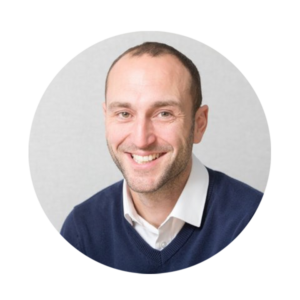
Dan Johnson
A forensic psychologist and Clinical Director of Kibble education and care centre in Paisley. He has worked in in secure settings for nearly two decades and is passionate about the development and implementation of trauma and informed care. Dan is also the chair of ACAMH’s Scottish Branch.
